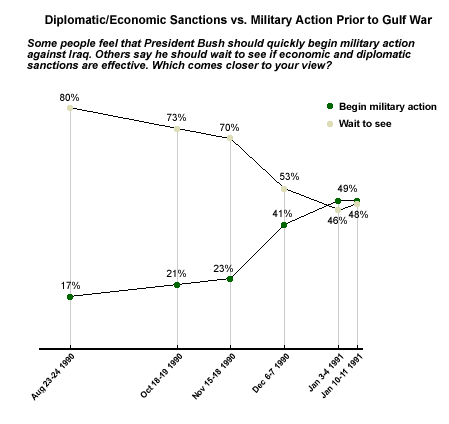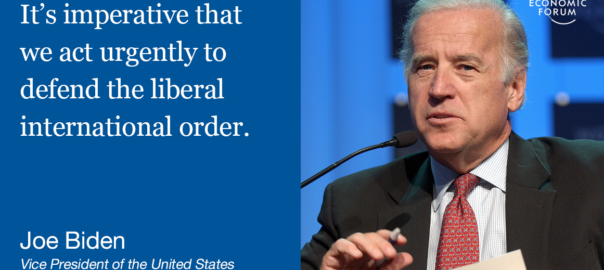By Kent R. Kroeger (Source: NuQum.com; January 3, 2019)
You know Trump has turned the world upside down when filmmaker and progressive activist Michael Moore takes the side of Secretary of Defense James Mattis, a consistent defender of current U.S. military interventions in Iraq, Syria and Afghanistan (though admitting to Congress last year that we are not winning in the latter case), over a president attempting to extract the U.S. from at least two of those open-ended military engagements.
“I was just watching the stuff with Mattis and I really, I think maybe this is the first time I’ve actually been frightened for the country in these almost two years,” Moore said to MSNBC host Ali Velshi.
“Frightened, really?” asked a skeptical Velshi.
Supporters of the liberal international order, with whom Moore has apparently aligned himself as he tunnels deeper into his anti-Trump psychopathy, and its requisite regime change wars, find themselves on the defensive.
“The choice we face isn’t a tactical matter between war and diplomacy, debating which tool of statecraft best serves a common goal,” warns Bill Scher in a recent Commentary article. “It’s a choice between two deeply divergent worldviews: an interconnected, international order that elevates human rights standards, versus a nationalist derby where autocrats roam unchecked.”
Christopher R. Hill, former U.S. Assistant Secretary of State for East Asia, argues that the U.S. military effort in Syria was prompted by our better angels and that pulling out too soon is relinquishing the country’s innocent citizens, particularly the Kurds who have fought bravely in fighting ISIS, to humanity’s worst actors (Assad, ISIS, Russia, and Turkey).
“No Middle East conflict is as complex as the one raging in Syria,” according to Hill. “The fight involves a government that is antithetical to Western values and a Sunni extremist insurgency that at one point captured the borderlands between Syria and Iraq and fought all the way to the gates of Baghdad.”
What Scher and Hill (along with other interventionists) fail to recognize however are these facts about the Syrian Civil War which work against U.S. objectives:
-
As the Arab Spring spread in 2011, the effort to overthrow the Assad regime was dominated by Sunni extremist groups, not pro-democracy moderates.
-
When the U.S. began to aid the anti-Assad rebels (presumably only the ‘moderate’ ones) in destabilizing the Assad regime, it effectively opened up the ISIS floodgate.
-
The rollback of ISIS began in earnest only after the U.S. stopped its two-front strategy of fighting both Assad and ISIS and allowed Assad’s forces to reorganize (with Russia’s help) and concentrate their efforts on fighting ISIS.
-
Assad’s pro-government forces (with Russia’s assistance and without U.S. regime change efforts) are capable of defeating the remaining ISIS and anti-Assad rebel strongholds in Syria (Hajin, Albu Kamal, and Idlib). Expect Assad’s forces to be exceptionally brutal in their suppression of the remaining ISIS and rebel forces.
-
Russia has a strategic interest in Syria : Its naval facility in Tartus — which happens to be Russia’s only overseas naval base. Russia was never going to sit back and let Assad fall. And that will remain true in the immediate future.
-
As heroically as the Kurds have fought in repelling ISIS and Assad forces from their home areas in northeast Syria, eventually they will need to negotiate a peace treaty with Assad and the Turks. The U.S. has never endorsed the establishment of an independent Kurdish state in Syria or Iraq and a U.S. withdrawal from Syria in the near future serves to accelerate acceptance of this fact and the start of substantive peace talks, hopefully soon.
Defenders of this country’s multiple ongoing regime change wars, like Hill and Scher, remind me of legendary New York Governor Al Smith’s term for idealists and reformers that thought their good intentions more than compensated their sub optimal policy results: He called them “Goo Goos.”
Cloaked in moral righteousness conferred when using terms like ‘human rights’ and ‘justice’, interventionists (like other idealists) too frequently fail to see the bigger, secular trends that undercut their country’s actual interests.
No better example of that dynamic can be found than Iraq.
Where once the military option was only exercised in defense of vital national interests, since George H. W. Bush’s 1991 Gulf War, increasingly human rights have been the public justification for U.S. military interventions.
Now a distant memory, a few of us still remember the challenge Bush Sr. had in selling a U.S.-led liberation of Kuwait (having been invaded by Saddam Hussein’s Iraq) to the American people.
Soon after the August 1990 invasion of Kuwait by Iraq, Bush justified a potential U.S. military intervention based on Iraq’s violation of international law. Iraq invaded a sovereign country without provocation or justification.

Yet, U.S. public support for such an invasion lumbered around 20 percent, according to the Gallup Poll. So Bush tried a different justification: “It’s about oil.” But when that argument fell flat with the American people, the Bush PR team launched a far more sophisticated disinformation campaign designed to portray Hussein’s Iraq as the closest thing to Hitler’s Germany since…well, Hitler’s Germany.
In a October 1990 hearing, hastily organized by the Congressional Human Rights Caucus, witnesses to reported Iraqi atrocities in Kuwait were brought before the panel to share their stories.
Journalist Joshua Holland recalled one of the more dramatic stories: “A young woman who gave only her first name, Nayira, testified that she had been a volunteer at Kuwait’s al-Adan hospital, where she had seen Iraqi troops rip scores of babies out of incubators, leaving them ‘to die on the cold floor.’ Between tears, she described the incident as ‘horrifying.’”
The potency of the human rights angle is hard to ignore:
A decade after the end of the 1991 Gulf War, Christian Science Monitor writer Tom Regan shared a story about how his family responded to the Kuwaiti incubator testimony:
I can still recall my brother Sean’s face. It was bright red. Furious. Not one given to fits of temper, Sean was in an uproar. He was a father, and he had just heard that Iraqi soldiers had taken scores of babies out of incubators in Kuwait City and left them to die. The Iraqis had shipped the incubators back to Baghdad. A pacifist by nature, my brother was not in a peaceful mood that day. “We’ve got to go and get Saddam Hussein. Now,” he said passionately.
Amnesty International and independent journalists would later document that, while the Iraqis did loot Kuwaiti hospitals, the ‘babies dying on the floor’ story was entirely bogus — yet, it was a critical element in selling the invasion of Kuwait to the American people.
On January 9, 1991, three days before the Bush administration requested congressional authorization for using force to remove Iraqi forces from Kuwait, only 46 percent of the public supported a military invasion (47 percent supported continuation of economic sanctions). While not a majority or even a plurality, the public’s support for the military option was growing and Bush seized on the momentum and launched the air campaign on January 16th.
You might think that experience would immunize the American people from falling for such tricks in the future, but who are we kidding? Every war we’ve fought since Vietnam has been predicated, at least partially, on lies and fabrications told us by our government. If it works and nobody is ever held accountable, why stop?
Fast forward to today. Since the 1991 Persian Gulf War, the U.S. has invaded Iraq again, replaced Saddam Hussein, installed a new government, and left Iraq (only to return in lower numbers). And what has been the BLUF (bottom-line-up-front) outcome of the billions financed by the U.S. Treasury to fight this regime change war?
Iraq is now a Shia-dominated client state of Iran.
That is not how it was supposed to end up.
But name a recent U.S.-led (or supported) regime change war that has worked out — or is working out — well.
Afghanistan?
According to now former Secretary of Defense James Mattis during congressional testimony in 2017, this was his summary of the situation in Afghanistan: “We are not winning in Afghanistan right now. And we will correct this as soon as possible,” he said.
Seventeen years and billions of dollars later and the Taliban is still not defeated? What evidence or assurance could be offered to cause any rational person to think the U.S. will ever win in Afghanistan?
Conservative radio host, Steve Deace, a well-known Trump critic from the evangelical right, calls the Afghan War “the greatest waste of money in U.S. history.” He’s not alone in that opinion.
If it were a private business venture, the U.S. effort in Afghanistan would have been defunded many years ago.
But this is what happens when a country socializes its defense and security functions. When the government starts something, it can always find a justification for never stopping it.
Where once the idea of privatizing national defense seemed absurd, now I’m not so sure.
At the very least, Trump’s introduction of chaos into the defense and security establishment’s decision-making apparatus should cause them to reflect more on how this country justifies its military interventions and the overwhelming evidence suggesting regime change wars never succeed, no matter how noble the intentions.
Libya? Syria? Iraq? Yemen? All fails. Afghanistan? If, after 17 years, the answer is still ‘to-be-determined’, that must be classified as a fail as well. And then there is Yemen. One million civilians now threatened by famine and diseases such as cholera because the region’s two greatest powers (not including Israel) — Iran and Saudi Arabia — would rather engage in a fruitless proxy war than meet at a negotiating table.
How about going back farther in time to Nicaragua? Forty years ago the Reagan administration was funding and training insurgents to overthrow Daniel Ortega’s Soviet-aligned government. And where are we now? Daniel Ortega is back in power and, if we believe recent American press accounts, is launching a brand new ‘reign of fear’ on his people.
If the U.S. can’t get it right in our own backyard, what are the chances we can engineer a successful regime change war in Iran ?— which, by many accounts, is our nation’s next great regime change project.
I’m sorry to say this, Joe Biden, but there is no urgent need to defend the liberal international order. Let it die.
- K.R.K.
Comments and insults can be sent to: kroeger98@yahoo.com
